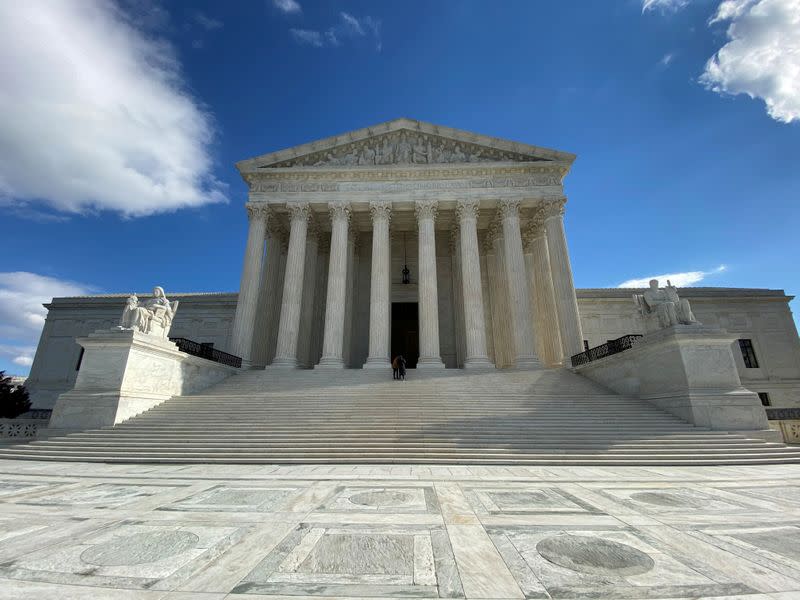U.S. Supreme Court sidesteps major gun rights ruling but more cases loom

By Andrew Chung
WASHINGTON (Reuters) - The U.S. Supreme Court on Monday dismissed a challenge to New York City restrictions on handgun owners transporting their firearms outside the home, avoiding the battle over the scope of the right to bear arms under the U.S. Constitution's Second Amendment for now.
But there are other cases pending that could give the court's conservative majority a chance to widen gun rights including challenges to assault weapon bans in Massachusetts and Cook County, Illinois, and permit requirements to carry firearms outside the home in Massachusetts, New Jersey and Maryland.
The justices in an unsigned decision threw out the New York dispute because the measure that was challenged by individual gun owners and the state's National Rifle Association affiliate was rolled back by the city last July, rendering the case moot.
The case was sent back to lower courts to determine whether the gun owners may seek damages or press claims that the amended law still infringes their rights. Justice Samuel Alito, in a dissent joined by fellow conservative Justices Clarence Thomas and Neil Gorsuch, said the case was not moot and that the city's law violated the Second Amendment.
Conservative Justice Brett Kavanaugh, while agreeing that the current dispute is moot, said in a concurring opinion that the court "should address that issue soon."
New York City and an array of groups that support gun safety laws said they were pleased with the court's action.
"The court's resolution was supported by plain common sense, the facts and the law," James Johnson, the city's corporation counsel, said in a statement.
President Donald Trump's administration had supported the NRA and gun owners in the New York case. The powerful lobby group is closely aligned with U.S. conservatives and Republicans including Trump.
Gun control proponents had feared that the justices would use the case to expand gun rights by either extending the right to possess firearms for self-defense beyond the home or by creating a strict standard that would force lower courts to cast a skeptical eye on new or existing gun control laws.
Such a ruling could have threatened a wide array of gun control measures nationwide such as expanded background checks for gun buyers and "red flag" laws targeting the firearms of people deemed dangerous by the courts, according to these advocates.
"Today's decision rejects the NRA's invitation to use a moot case to enact its extreme agenda aimed at gutting gun safety laws supported by a majority of Americans," said Hannah Shearer, litigation director at the Giffords Law Center to Prevent Gun Violence.
The NRA did not immediately respond to a request for comment.
The case focused on New York City's handgun "premises" licenses that allowed holders to transport their firearms only to a handful of shooting ranges within the city and to hunting areas elsewhere in the state during designated hunting seasons. The city's ordinance was amended last year to remove the restrictions challenged in the case.
The issue of gun rights is contentious in the United States, which has experienced a succession of mass shootings in recent decades that have prompted calls from many Americans for stricter regulation of firearms and ammunition. But, citing the Second Amendment, the NRA and gun rights advocates have consistently resisted most firearms control measures.
The Manhattan-based 2nd U.S. Circuit Court of Appeals ruled that the regulation advanced the city's interest in protecting public safety and did not violate the Second Amendment. The plaintiffs - local handgun owners and the New York State Rifle & Pistol Association - appealed to the Supreme Court.
Alito wrote that gun safety reasons given by the city were dubious and that there is "cause for concern" over how lower courts are applying the Supreme Court's 2008 precedent recognizing for the first time that the Second Amendment protects a person's right to keep a gun at home for self-defense. The justices in 2010 extended that decision to the states.
(Reporting by Andrew Chung in New York and Lawrence Hurley in Washington; Editing by Will Dunham)


